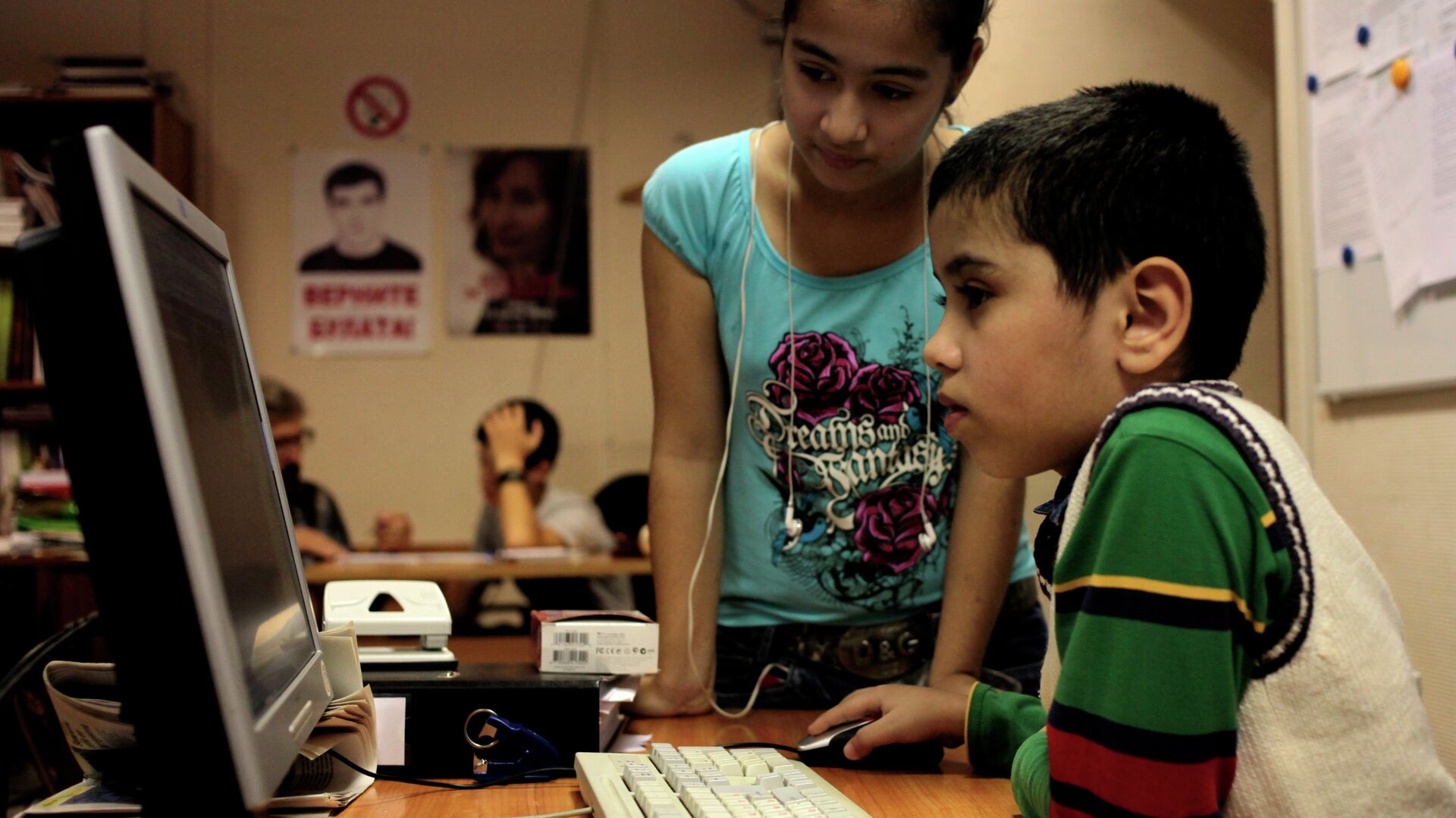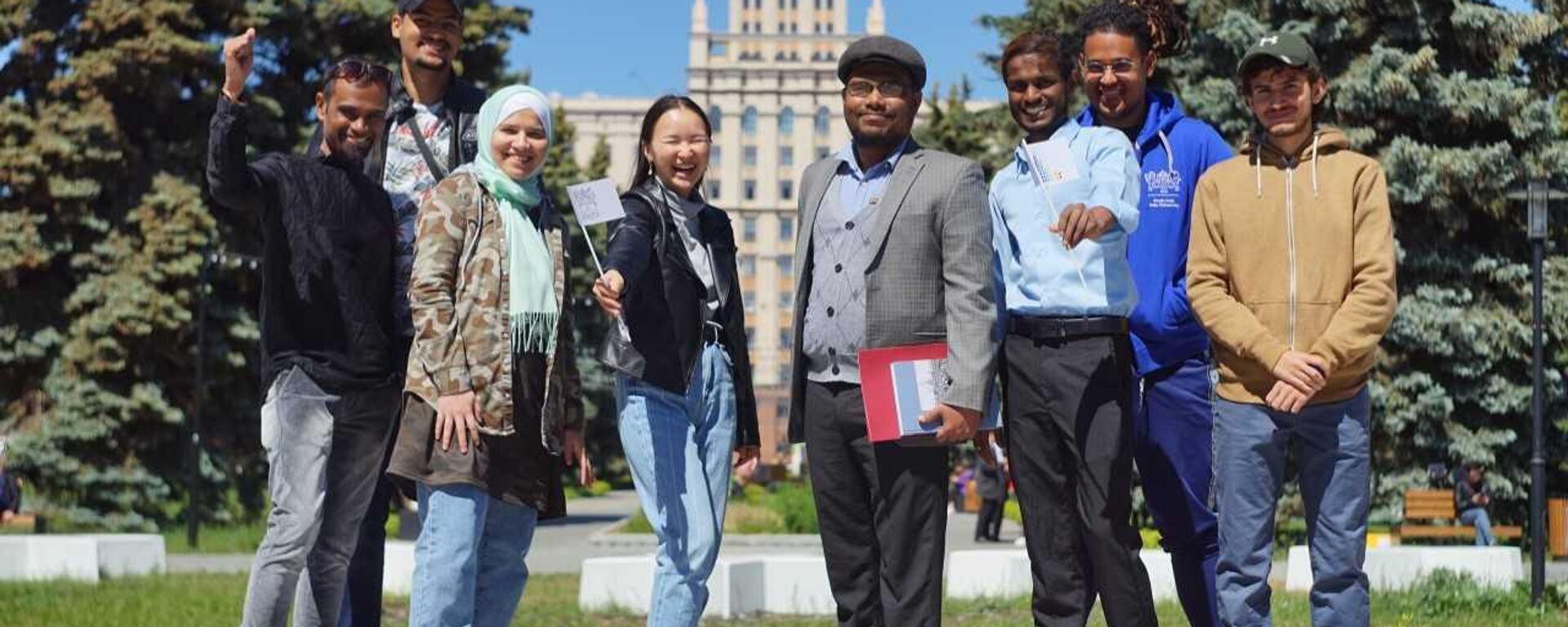https://sputnikglobe.com/20220804/study-student-monitoring-software-is-hurting-students-targets-lgbtq-1098093659.html
Study: Student Monitoring Software is Hurting Students, Targets LGBTQ+
Study: Student Monitoring Software is Hurting Students, Targets LGBTQ+
Sputnik International
As the pandemic raged, parents and school administrators were looking for ways to continue the education of America’s children, and online learning took center... 04.08.2022, Sputnik International
2022-08-04T03:35+0000
2022-08-04T03:35+0000
2022-11-03T19:30+0000
technology
computer
privacy
lgbtq
education
https://cdn1.img.sputnikglobe.com/img/16086/72/160867228_0:418:4905:3177_1920x0_80_0_0_ea99a97160abdf17bdb52761a2013c1e.jpg
A new study by the Center of Democracy and Technology (CDT) has shown that the monitoring software, which is still in use despite in-class learning resuming, is disproportionately used to punish and spy on students.According to the study, 78% of the teachers whose schools use the monitoring software report that it is used to determine if the student has violated school policies. In contrast, only 54% say it was used to refer students to a counselor or mental health professional.In nearly half of the cases, the monitoring software is used outside of school hours despite only 48% of parents and 30% of students supporting that policy. In contrast, 70% of parents and 63% of students are comfortable with monitoring student activities during school hours. Additionally, in the schools that monitor student activity outside of school hours, the majority of the alerts came after that time.And the burden of following up with these alerts is increasingly falling onto the shoulders of teachers, who are ill-equipped to handle it. Forty-five percent of teachers reported seeing alerts from monitoring software at least once a week and 17% reported seeing them every day. But only 31% of teachers reported receiving training on how to handle the data securely and privately.Furthermore, students who use school-monitored devices are more likely to have interactions with law enforcement, and LGBTQ+ students are disproportionately referred to law enforcement. Approximately half of students say they are not comfortable expressing their true thoughts and feelings online when they are being monitored, which may prevent them from researching or seeking out mental health services.Nearly 3 in 10 LGBTQ+ students say they were outed by their school to their parents, and 56% of them say they got in trouble for visiting an inappropriate website or saying something inappropriate online, compared to just 44% of non-LGBTQ+ students.In addition, students from lower-income families rely on school-issued devices more than students from higher-income families who have their own personal devices and are therefore more likely to be subjected to disciplinary actions or other effects of the monitoring.But the monitoring is not always limited to personal devices. In one case, text messages sent from students’ phones resulted in monitoring software sending alerts because the students connected their personal phones to the school-issued laptops to charge them.While many teachers say the monitoring software was essential to them doing their job during the pandemic, students have by and large returned to in-person classes. Despite this, 89% of teachers report that their schools still use monitoring software, up from 84% in the 2020-2021 school year.
https://sputnikglobe.com/20220729/educational-networking-how-study-abroad-changes-lives-1097918878.html
Sputnik International
feedback@sputniknews.com
+74956456601
MIA „Rosiya Segodnya“
2022
News
en_EN
Sputnik International
feedback@sputniknews.com
+74956456601
MIA „Rosiya Segodnya“
Sputnik International
feedback@sputniknews.com
+74956456601
MIA „Rosiya Segodnya“
technology, computer, privacy, lgbtq, education
technology, computer, privacy, lgbtq, education
Study: Student Monitoring Software is Hurting Students, Targets LGBTQ+
03:35 GMT 04.08.2022 (Updated: 19:30 GMT 03.11.2022) As the pandemic raged, parents and school administrators were looking for ways to continue the education of America’s children, and online learning took center stage. To facilitate this, schools issued laptops and most installed monitoring software intended to help keep students on task.
A new study by the Center of Democracy and Technology (CDT)
has shown that the monitoring software, which is still in use despite in-class learning resuming, is disproportionately used to punish and spy on students.
According to the study, 78% of the teachers whose schools use the monitoring software report that it is used to determine if the student has violated school policies. In contrast, only 54% say it was used to refer students to a counselor or mental health professional.
In nearly half of the cases, the monitoring software is used outside of school hours despite only 48% of parents and 30% of students supporting that policy. In contrast, 70% of parents and 63% of students are comfortable with monitoring student activities during school hours. Additionally, in the schools that monitor student activity outside of school hours, the majority of the alerts came after that time.
And the burden of following up with these alerts is increasingly falling onto the shoulders of teachers, who are ill-equipped to handle it. Forty-five percent of teachers reported seeing alerts from monitoring software at least once a week and 17% reported seeing them every day. But only 31% of teachers reported receiving training on how to handle the data securely and privately.
Furthermore, students who use school-monitored devices are more likely to have interactions with law enforcement, and LGBTQ+ students are disproportionately referred to law enforcement. Approximately half of students say they are not comfortable expressing their true thoughts and feelings online when they are being monitored, which may prevent them from researching or seeking out mental health services.
Nearly 3 in 10 LGBTQ+ students say they were outed by their school to their parents, and 56% of them say they got in trouble for visiting an inappropriate website or saying something inappropriate online, compared to just 44% of non-LGBTQ+ students.
In addition, students from lower-income families rely on school-issued devices more than students from higher-income families who have their own personal devices and are therefore more likely to be subjected to disciplinary actions or other effects of the monitoring.
But the monitoring is not always limited to personal devices. In
one case, text messages sent from students’ phones resulted in monitoring software sending alerts because the students connected their personal phones to the school-issued laptops to charge them.
While many teachers say the monitoring software was essential to them doing their job during the pandemic, students have by and large returned to in-person classes. Despite this, 89% of teachers report that their schools still use monitoring software, up from 84% in the 2020-2021 school year.




